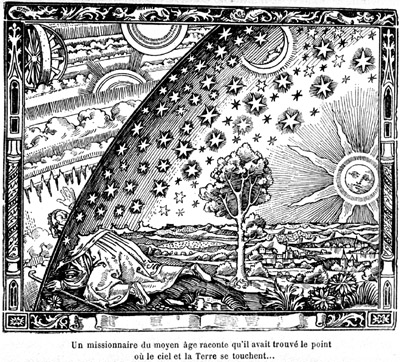|
|
 |
|
Image
source: http://en.wikipedia.org/wiki/Astrology
|
On a cold winter evening on my way home from the office, an epiphany struck me as hard as that bitterly cold gust of wind; the answer to predicting human behavior was over 4000 years old, but ignored because of its name - Astrology. Astrology is the study of celestial bodies in order to divine what we as humans will do next. But don't disregard this science merely for how it's practiced and discussed. Instead, think of astrology as a way of marking different periods in time. During these periods, each containing an identical set of circumstances directed by the dominant civilization of the period, lead the majority of those born during these periods to also behave identically in their adulthood. (Think of the Baby Boomer generation, except that the identifying timeframe is just a mere week or month, rather than years.)
This idea resurfaced while in the midst of an education study. While looking around for data, it occurred to me that there weren't any studies tracking a student through adulthood, to determine how a certain type of education had impacted that student. Of course, starting a study with a group of 4, 5, 6 year olds and waiting for them to turn 40, 50, and 60 is as impractical as it sounds. Needless to say, many an observer has noted this similar quandary of civilization, but has been unable to probe much further than the common knowledge that history repeats itself.
And it's in this thinking of how history repeats itself that it makes sense that a single, continuous body of observational research and analysis may actually hold the foundation on which to attempt to predict human behavior, regardless of time. It's not altogether impossible that astrologers, by way of tracking millennia of human acts, are actually anticipating, rather than predicting, future histories, not by divining the heavens, but merely by recognizing common signals - i.e. birthdays, personal possessions - that indicate a person is a member of a well-documented group already known to possess a common set of behaviors.
Possible evidence of this hypothesis exists in two examples too big and too common to notice:
I) Any writing at the center of any faith (i.e. the Bible, the Qur'an, the Torah) typically uses stories to illustrate behaviors (allowed and forbidden). Having been written thousands of years ago, they are equally relevant today as when they were written. These books are designed as prescient guides for life when all they're really doing is offering up good examples as why we should do certain things. Their prescience is evidence that we in fact do repeat the same mistakes over and over again.
II) Disregarding timeframe as years, months, and days, a 4000-year old science can only use the largest imaginable signs - "the heavens" - to mark time. Unable to depend on the experience of ultra-longevity, astrologers used fixed signs, such as animals and planetary movements to assign to behaviors and the common characteristics manifested in those behaviors.
Thus, it is theoretically possible to track relatively minute points in time - and the exact same behaviors occurring during these points - with these signs. And if this theory holds, it is possible to claim that astrology has documented 4000 years of human existence and practitioners are merely recalling and relating these experiences in terms more relevant to those who seek their council.
Regrettably, because the vernacular of practitioners has evolved over millennia and more advanced branches of science diminished the value of this unique human record, astrology failed to achieve acknowledgement for what it truly is, the very first social science.
Without databases or search engines, astrologers, like navigators, have used celestial bodies to mark points in time when those born and living during these points in time are likely going to experience a future not based on movement of celestial bodies, but instead, on what millions of others born into similar points in previous times had experienced. Astrologers were biographers, anthropologists, and analysts and were respected as much for their wisdom as for their accuracy of "prediction", which was, again, nothing more than an ability to broadly recount an inevitable outcome based on the similar set of circumstances presented to them by those who wanted their "fortunes told".
Without this in-depth comprehension of the practice, which took years of study to master, it isn't surprising that a few short-cutters would jump on the bandwagon, especially since the actual prerequisites weren't fully understood nor practically achievable by everyone and the power and authority granted were tempting prizes for any fool.
Ironically, today astrology is a mainstream form of entertainment, enjoyed by the naive and believed by those not attached to any groups or support networks (i.e. religion, ideologies). It's a de facto part of any mass media channel, which, as was the topic of our meeting, is ultimately responsible for anointing that which they arbitrarily decide requires fame (or notoriety) and persuading the overentertained and underinformed (and consequently, apathetic) masses to believe one thing over another without question, but with pre-packaged answers, so curiosity falls victim to exasperation upon any inquiry, and voila, civilization proceeds the same as always, constantly being reminded of its liberties and free existence, yet seldom being able to exercise them to their full potential.
And astrologers are just
keeping track in the background.
|
|